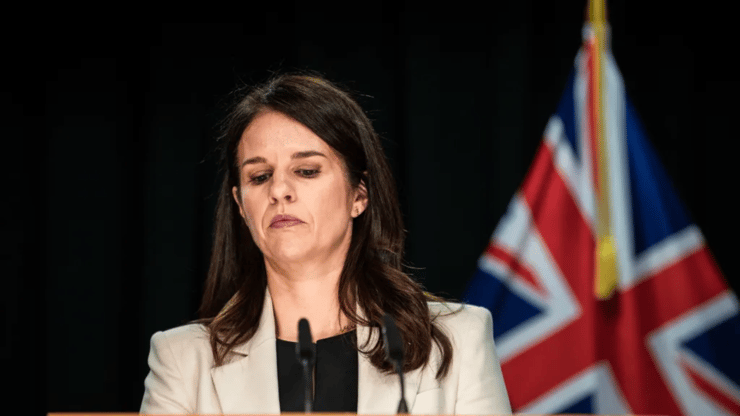Was Such A Steep Visa Fees Hike Really Needed?

Immigration Minister Erica Stanford is refusing to comment on her increased visa fees being far more than is needed to meet Immigration New Zealand's costs.
The government on Friday unveiled substantially increased visa fees starting from 1 October, a move Minister Erica Stanford said would free up more than $563 million over four years - about $140m a year.
National had promised during the election campaign to make Immigration New Zealand (INZ) a fully self-funded system.
Stanford's statement announcing the changes said it would bring in more than $563 million over four years.
"The new charges reflect the costs associated with visa processing, assessing and managing more high-risk applications, and increased compliance costs as we deal with higher levels of migrant exploitation, managing more asylum claims, and maintaining and upgrading Immigration New Zealand's ICT systems," Stanford said.
However, Immigration NZ's deficit in May was forecast at less than a quarter of the roughly $140m a year extra the new fees would bring in.
"The forecast deficit across all three accounts: fees, NZeTA and immigration levy by the financial year end 2024 is $32.2 million," Immigration NZ's head of finance business partnering Chris Shi told RNZ.
A breakdown of the past five years also shows INZ was set to bring in more revenue than was lost in processing costs for the second year in a row.

A chart showing visa fee revenue and expenditure over the past five years. Photo: Immigration NZ
The Minister has refused RNZ's requests for an interview.
The Green Party's Immigration spokesperson Ricardo Menendez March said the numbers made it clear the government was always more focused on finding "desperate ways to pay for tax cuts" than making Immigration NZ more self-reliant.
"This government is actively under-resourcing immigration New Zealand by cutting Crown funding and then putting the burden on migrant workers, who are being used as cash cows to pay for tax cuts.
"Visa fees have increased by almost twice for many visa categories, and we know from the government's own advice that this will actually put some families in hardship, and particularly around overstayers who face huge barriers to meet the costs to regularise their status."
He said the increases and the government's focus meant the immigration system was returning to a model where it would rely on "hyper-migration" to fund itself, which was at odds with the volatile nature of immigration.
"We saw this actually just a few years ago with the pandemic which kneecapped Immigration New Zealand's ability to obtain a good amount of revenue via high net migration.
"The number of migrants coming into the country changes year by year ... with the government cutting the amount of money they put into Immigration NZ we're leaving policy advice reliant on high net migration figures.
"We're also seeing the ability for processing asylum seeker claims more reliant on high migration."
Some of the increases in fees:
- Skilled Residence Category migrant visas from $4290 to $6450
- Entrepreneur Residence Category visa from $6860 to $14,890
- Active Investor Plus Category from $7900 to $27,470
- Residence from Work Category from $4240 to $6490
- Family Category from $2750 to $5360
- Dependent Child visa from $2750 to $3230
- Parent Retirement Category from $5260 to $12,850
- Employees of Relocating Business Category from $4350 to $5510
- Pitcairn Islanders from $1610 to $1940
- Temporary Retirement Category visitor visa from $3790 to $7791
- Student visas from $375 to $750
- Post-study work visa from $700 to $1670
- Work to Residence and Partner work visa both up from $860 to $1630
- Entrepreneur Work Visa from $3920 to $12,380
- Working Holiday scheme from $420 to $670, with extensions to the scheme going from $420 to $700
- Accredited Employer Work Visa from $750 to $1540
A few costs went down slightly, including for RSE workers and recruiters, and for those seeking to have a declined temporary visa reconsidered. NZeTA application costs were unchanged at $23 via the INZ website, or $17 via the smartphone app.





